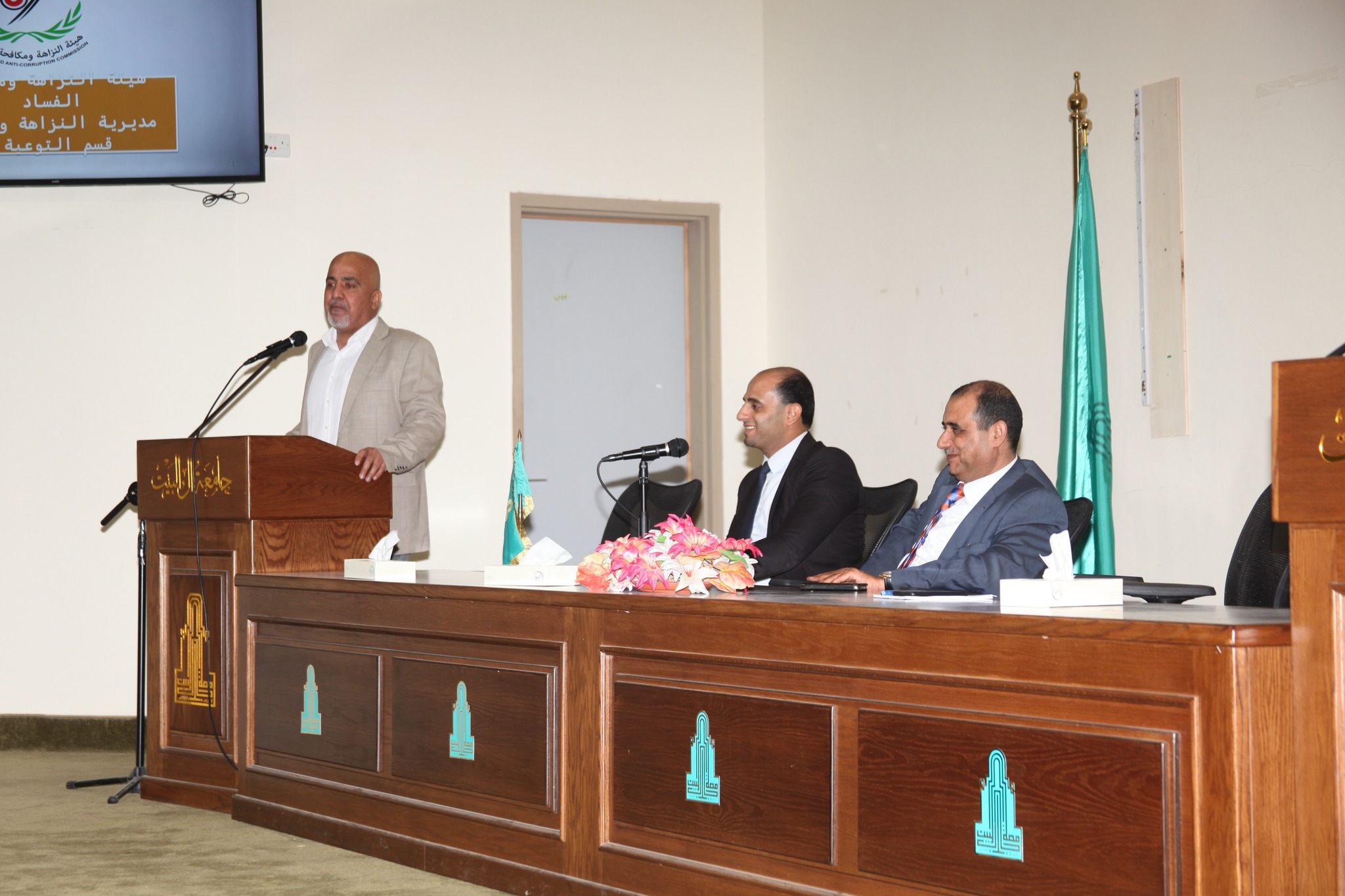Integrity and Anti-Corruption Commission Lectures at Al al-Bayt University

The Vice President of the University for Administrative and Financial Affairs, Professor Omar Al-Ateen, sponsored the awareness lecture of the Integrity and Anti-Corruption Commission on the standards of national integrity and the importance of combating corruption, in cooperation with the Internal Control Department at Al al-Bayt University, where this lecture comes within the activities of the Integrity Ambassadors Program, which targets Jordanian university students.
The representative of the Integrity Commission, Investigator Abdul Rahman Mheidat, presented an explanation of the national integrity standards as a set of concepts that are circulated within national institutions with the aim of preventing the exploitation of power or position, the most important of which are the rule of law standard, the transparency standard, the justice and equality standard, the accountability standard, and the good governance standard in making administrative decisions away from personal interests. Mheidat stressed the need to involve young people in corruption prevention efforts by raising their awareness and activating their role in decision-making.
Investigator Samer Al-Dusit from the Integrity Commission also gave a presentation on the corruption crimes that the Commission deals with, which fall under the category of a public employee's misuse of the authority granted to him by law in order to achieve private benefits, explaining the Commission's jurisdiction to investigate the public employee in the event of prejudice to public funds, as these acts are classified as crimes that violate public office, such as bribery, embezzlement, investment of office, and abuse of authority, and crimes that violate public trust, such as criminal forgery and false certifications, and economic crimes such as illicit gain and money laundering crimes. Al-Dusit affirmed that the Integrity and Anti-Corruption Commission provides full protection for witnesses and whistleblowers.
For his part, Vice President Dr. Al-Ateen stressed that the Integrity and Anti-Corruption Commission represents a living model in building real trust between the citizen and the state and works to spread the concepts of integrity and transparency among university students in order to build a conscious generation that rejects corruption and seeks to achieve justice and equality.
At the end of the lecture, which was attended by the Dean of the Faculty of Law, Professor Samer Dalala'a, and a number of faculty members and students in the Faculties of Law and Business, a wide-ranging discussion took place on the mechanism of work and outputs of the Integrity and Anti-Corruption Commission.